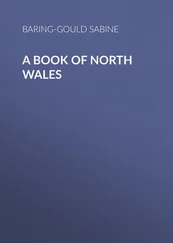Sabine Baring-Gould - Brittany
Здесь есть возможность читать онлайн «Sabine Baring-Gould - Brittany» — ознакомительный отрывок электронной книги совершенно бесплатно, а после прочтения отрывка купить полную версию. В некоторых случаях можно слушать аудио, скачать через торрент в формате fb2 и присутствует краткое содержание. Жанр: foreign_antique, foreign_prose, на английском языке. Описание произведения, (предисловие) а так же отзывы посетителей доступны на портале библиотеки ЛибКат.
- Название:Brittany
- Автор:
- Жанр:
- Год:неизвестен
- ISBN:нет данных
- Рейтинг книги:4 / 5. Голосов: 1
-
Избранное:Добавить в избранное
- Отзывы:
-
Ваша оценка:
- 80
- 1
- 2
- 3
- 4
- 5
Brittany: краткое содержание, описание и аннотация
Предлагаем к чтению аннотацию, описание, краткое содержание или предисловие (зависит от того, что написал сам автор книги «Brittany»). Если вы не нашли необходимую информацию о книге — напишите в комментариях, мы постараемся отыскать её.
Brittany — читать онлайн ознакомительный отрывок
Ниже представлен текст книги, разбитый по страницам. Система сохранения места последней прочитанной страницы, позволяет с удобством читать онлайн бесплатно книгу «Brittany», без необходимости каждый раз заново искать на чём Вы остановились. Поставьте закладку, и сможете в любой момент перейти на страницу, на которой закончили чтение.
Интервал:
Закладка:
These tribes were subjugated by Cæsar, and the Veneti almost exterminated by him. Under the Romans, the culture and the language of the conquerors were rapidly assimilated. Christianity took root at Rennes and Nantes and Vannes, but almost nothing was done for the rural population, which probably still spoke its agglutinative tongue akin to the modern Basque. The stately bishops of these Gallo-Roman cities confined themselves to ministering to the cultured residents within their walls, and in villas scattered along the coast. The Gallo-Roman population had dwindled to an incredible extent, under the exactions of the imperial tax-gatherers, so that all the country residences fell into ruin, and the impoverished Gallo-Romans withdrew into the towns. But early – very early in the 5th century, fleets of British settlers came over, flying from the swords of Picts and Scots, and occupied the land about the mouth of the Loire. By 469 they were so numerous as to be able to send a contingent of twelve thousand men to the assistance of the Romans against the Visigoths.
As a consequence of the Saxon invasion of Britain the immigration grew, and the dispossessed islanders sought and found a new home in the Armorican peninsula, where they established themselves under their own princes, with their own institutions, civil and ecclesiastical, and their own tongue. Thenceforth Armorica ceased to be so called, and received the name of Lesser Britain, and the current language became British, identical with that now spoken in Wales, and spoken till the 17th century in Cornwall as well. Contact with France along the East has gradually thrust back the Breton language, but it is still spoken from Guingamp, in a slanting line to the mouth of the Loire. Two British kingdoms were formed, Domnonia and Cornubia; the former included the Côtes-du-Nord and Finistère above the river Elorn, and Cornubia or Cornouaille was the district below that river, the basin between the Monts d'Arrée and the Montagnes Noires, and stretched to the river Ellé at Quimperlé. All the department of Morbihan was the Bro-Weroc, a county, but the British chief did not call himself its king, probably because the colonists did not get hold of Vannes, the capital, which they enveloped but left unmolested.
At first the British colonists admitted their allegiance to their native princes in Britain, who certainly came over, and were granted certain lands as the royal dominium in the newly settled land. Thus we have Geraint, King of Devon, with his palace in Belle Ile, and portions of the newly-acquired territory on the Blavet, in Morbihan, and near Matignon, in Côtes-du-Nord. His son Solomon, or Selyf, as was his British name, also came over, and is said to have fallen at Langollen, probably whilst endeavouring to enforce taxes on the native original pagan inhabitants.
But as the insular power of the Britons was broken, the colonists considered themselves independent, and acknowledged a loose and ill-defined submission to the Frank kings at Paris, who, however, left them to be governed by their native rulers.
But not only did Britons settle in the land. Large numbers of Irish arrived from Ossory and Wexford, at the close of the 5th century, and settled along the west and north coast. No traces of them are found south of Hennebont, or west of Guingamp, but all the coastline of Cornouaille and Léon was studded thick with them.
Now only was a serious attempt made to convert the native population. The chiefs who came over were attended or followed by their brothers and cousins who were ecclesiastics, and these were granted lands on condition that they educated the young of the freeborn colonists of the tribe, and ministered in sacred matters to the tribesmen.
The work of the evangelisation of Ireland seems to have sent a thrill through Brittany, and to have been taken up there with energy. Missionary colleges were formed by some of the assistants of Patrick, which should serve as training places for those who were to assist in carrying on the apostolic work in Ireland.
The principal Irish founders in the country were: – Fiacc, Bishop of Sletty, called in Breton Vi'ho; Tighernac, Bishop of Clogher and Clones, in Breton Thégonnec; Eugenius, Bishop of Ardstraw, in Breton Saint Tugean; Senan, Abbot of Inniscathy (Breton Seny), Setna, his disciple, in Breton Sezni; Conleath, Bridget's domestic bishop, in Breton Coulitz, Ronan and Brendan.
The principal British founders were: – Cadoc, Brioc, Tugdual, Leonore, Paulus Aurelianus, Curig, Caradoc, Gildas, and his crippled son Kenneth; David, Samson, Malo, Arthmael, Meven, and Mancen or Mawgan – this latter closely allied with the Irish mission. Nonna, mother of S. David, Ninnoc, Noyala, and disciples of S. Bridget, established institutions for the education of the daughters of the freemen of the tribe to which the schools were attached.
In 845, Nominoe, who had been invested with the lieutenancy of Brittany by Louis the Pious, led a revolt against Charles the Bald, and established the independence of Brittany that lasted till the Duchess Anne brought it under the French crown, 1491. From the close of the 9th century, and throughout the 10th, the coast was ravaged by the Northmen, Frisians and Danes, and the insecurity inland caused the desertion of the country and the flight of the monks carrying the relics of their founders to walled towns in the heart of France. That Brittany should thus fall a prey to these invaders was largely due to the divisions that existed among its princes, who could not or would not combine against the common foe. At length Alan, Count of Vannes, did succeed in rallying the Britons, and defeated the Northern pirates, which secured rest for fifteen years. For the first time under him did the Gallo-Roman towndwellers consent to make common cause with the descendants of the British colonists.
On the death of Alan (907) the Northmen reappeared, and a great many Bretons under Count Matthuedoi of Poher fled to England and threw themselves on the protection of Athelstan.
In 938, Alan Barbetorte, godson of Athelstan, returned from England and drove out the Normans. Nantes was in such complete ruin that when Alan sought to reach the fallen altar of the cathedral church, there to offer up his thanks for victory gained, he was constrained to hew his way to it through a thicket of thorns and brambles.
After the expulsion of the Northmen Brittany was reorganised. Hitherto the colonists had been divided into tribes, each of which was a plou , and no Gallo-Roman could enter into one such. But after the victories of Alan Barbetorte the plous were not reconstructed, and the feudal system succeeded to that which was tribal.
Brittany was now broken up into a hierarchy of counties and seigneuries, and the king abandoned the royal title and contented himself with that of duke. The great counties were those of Léon, Cornouaille, Poher, Porhoet, Penthièvre, Rennes and Nantes. Five barons defended the eastern frontier, holding their fiefs under the Count of Rennes; these were Châteaubriant, la Guerche, Vitré, Fongères and Combourg. The whole vast inland forest was given to the Counts of Rennes, it was Porhoet. It was divided into two parts. In the east the seigneuries of Gael, Loudéac and Malestroit were created as fiefs. In the west there was but a single seigneurie, that of Porhoet; the viscount lived at Josselin. Later it was broken up and gave birth to the viscounty of Rohan.
The old kingdom of Cornouaille became a county with vassal barons at Pont l'Abbé, Pont Croix, the abbot of Landevennec, and the viscount of Le Faou. In the interior were the viscounts of Poher and Gourin.
The old kingdom of Domnonia was divided into three counties, Léon, Penthièvre and Tréguier.
The Ducal crown did not long remain in the family of Alan Barbetorte. After internecine war lasting forty years, Conan, Count of Rennes, assumed the title (990), and the dukes of his house spent their time in fighting and crushing their own kinsmen. Geoffrey I. had married a Norman wife, and he had by her two sons, Alan and Eudo. In 1034 Eudo, jealous and ambitious, demanded of his brother a share in the duchy. Alan gave him the counties of Tréguier and Penthièvre, and thus Eudo became the ancestor of that great and dangerous family of Penthièvre, which maintained undying rivalry with the ducal house, and made of Brittany a field of civil war for centuries. Conan II. succeeded as a child of three months, and his uncle ruled in his name, aided by the Normans. When Conan came of age, he had to fight against Eudo; he invaded Normandy, but was cut off by poison. When William the Conqueror became King of England, Brittany was nipped between France and Normandy, and became an object of ambition to both, and a common battlefield.
Читать дальшеИнтервал:
Закладка:
Похожие книги на «Brittany»
Представляем Вашему вниманию похожие книги на «Brittany» списком для выбора. Мы отобрали схожую по названию и смыслу литературу в надежде предоставить читателям больше вариантов отыскать новые, интересные, ещё непрочитанные произведения.
Обсуждение, отзывы о книге «Brittany» и просто собственные мнения читателей. Оставьте ваши комментарии, напишите, что Вы думаете о произведении, его смысле или главных героях. Укажите что конкретно понравилось, а что нет, и почему Вы так считаете.












